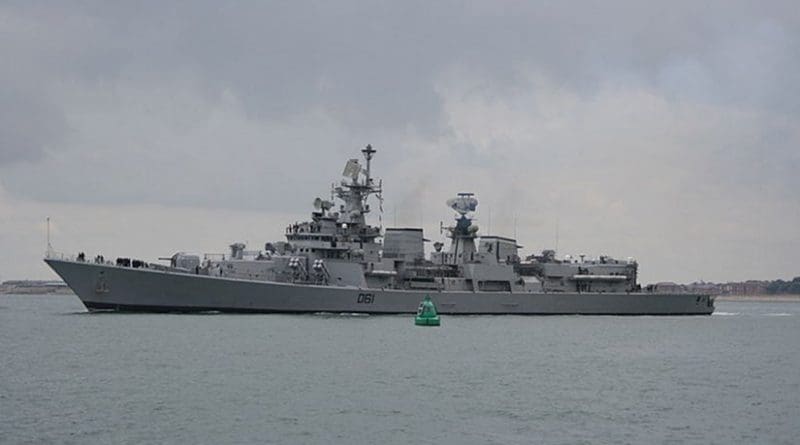Malabar Exercise: A Concert Of Democracies On The High Seas – Analysis
By Observer Research Foundation
By Rajeswari Pillai Rajagopalan and Sylvia Mishra*
Exercise Malabar has been a India-US bilateral naval exercise since the 1990s and included the Japanese Maritime Self Defence Forces (JMSDF) in 2007, 2009 and 2013. From this year, the inclusion of JMSDF has been made a permanent feature, despite Chinese protests.
From October 14 to 19 the navies of India, the United States and Japan participated in Exercise Malabar 2015 – a complex naval war gaming in the Bay of Bengal. This exercise aimed at enhancing naval cooperation and bolstering capabilities of the navies to address challenges of maritime security in the India-Pacific region.
Exercise Malabar has been a India-US bilateral naval exercise since the 1990s and included the Japanese Maritime Self Defence Forces (JMSDF) in 2007, 2009 and 2013. From this year, the inclusion of JMSDF has been made a permanent feature, despite Chinese protests. An article in China’s Global Times said, ’India should be vigilant to any intentions of roping it into an anti-China camp.’ The importance of India’s step towards permanency of multilateral joint drills is centred on the purpose of establishing a rules-based India-Pacific region in the face of a growing Chinese naval presence in the Indian Ocean and territorial disputes in the South China Sea.
As maritime security looms large for India, the US and Japan, the three nations have embarked on a multipronged cooperation, including by elevating the trilateral dialogue to the foreign ministers level. The declaration of freedom of navigation and unimpeded lawful commerce, which also includes the South China Sea in the recent joint statement, reflects their decision to maintain maritime security through greater collaboration. An important outcome of the ministerial dialogue was to launch an experts-level group to strengthen regional connectivity, especially between South and Southeast Asia.
Clearly, the inclusion of Japan as a permanent member of Exercise Malabar and the elevation of trilateral talks are watched by China. This question was raised at the press conference during the India-US Strategic and Commercial Dialogue. However, both the US secretary of state John Kerry and India’s minister for external affairs Sushma Swaraj quickly clarified that China did not even figure in their conversation.
Exercise Malabar and the trilateral dialogue have also assumed significance in the backdrop of the US’ rebalance to Asia and India’s Act East Policy. The growing convergence of interests among the US, Japan and India on issues such as the Indian Ocean, maritime security, respect for international law and a stable Asian security order has driven the trilateral dialogue.
Humanitarian Assistance and Disaster Relief (HADR) is also gaining an increasing currency in these dialogues. While India-US and US-Japan have previously focused on HADR, tripartite India-US-Japan cooperation has only seen a nascent beginning. It is expected that cooperation on HADR would be enhanced through an experts group.
*Rajeswari Pillai Rajagopalan is a Senior Fellow and Sylvia Mishra is a Junior Fellow at Observer Research Foundation, Delhi
Courtesy: The Hindustan Times, October 20, 2015

